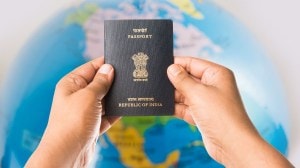Every year on July 25, World IVF Day is marked to celebrate the first successful birth via in vitro fertilisation (IVF) in 1978. But nearly five decades later, many people still don’t realise how small lifestyle changes can make a big difference in IVF success. If you’re undergoing IVF or planning to, experts say it might be time to rethink your daily habits, especially that morning cup of cappuccino or weekend wine.
According to fertility doctors, even moderate amounts of caffeine and alcohol may lower your chances of conceiving through IVF.
“Undergoing in vitro fertilisation (IVF) is a physically and emotionally demanding journey, and couples often seek to control every possible variable that could influence success,” says Dr. Kaberi Banerjee, Infertility and IVF Expert, Founder and Medical Director, Advance Fertility & Gynaecology Centre. “Both alcohol and caffeine can affect gamete quality, embryo implantation, and ultimately IVF success rates,” she further added.
Caffeine: How much is too much?
While moderate caffeine may be considered safe, studies suggest that high intake, over 200 mg per day (about two cups of coffee), can reduce fertility outcomes.
“Although causation hasn’t been firmly established, more and more evidence suggests that high caffeine intake may reduce implantation and lower live birth rates with IVF,” Dr. Banerjee explains.
Caffeine isn’t just in coffee; it’s also found in tea, colas, energy drinks, and some medications. “One should limit intake to a maximum of two standard cups of coffee per day and watch out for hidden sources,” she adds.
Too much caffeine may disrupt hormonal balance, reduce endometrial receptivity, and even compromise egg quality. “Even if the data is not 100 per cent conclusive, it’s wise to adopt a precautionary approach, especially during ovarian stimulation and embryo transfer,” Dr. Banerjee notes.
Alcohol: Can impair egg quality and hormonal control
When it comes to alcohol, the evidence is more alarming.
“Multiple clinical trials have linked alcohol consumption with lower pregnancy and live birth rates during IVF,” warns Dr. Banerjee. “In women, it can impair egg quality and hormonal control. In men, it affects sperm count, motility, and shape.”
A 2023 study titled ‘Preconception paternal alcohol exposure decreases IVF embryo survival and pregnancy success rates’, published in Molecular Human Reproduction, also found that alcohol use in the three months before IVF treatment reduced embryo development rates and significantly lowered the chances of a successful pregnancy.
“Couples must understand that both partners play an equal role in IVF success. Male alcohol use has been strongly associated with lower live birth rates,” Dr. Banerjee adds. “That’s why we advise complete abstinence from alcohol in both partners before and during treatment.”
Why lifestyle changes matter?
While IVF involves medical precision, lifestyle choices like diet, stress, sleep, and substance use also matter.
“For couples already under the stress of IVF, avoiding caffeine and alcohol is a simple but powerful way to boost their odds,” says Dr. Banerjee. “Caffeine may be acceptable in small amounts, but alcohol should be avoided completely.”
She also emphasises that each couple is different. “Your fertility specialist will guide you based on your unique health profile, but when in doubt, avoid anything that could interfere with your body’s reproductive potential.”
On this World IVF Day, experts remind us that while technology has advanced, success still depends on our daily lifestyle habits.








